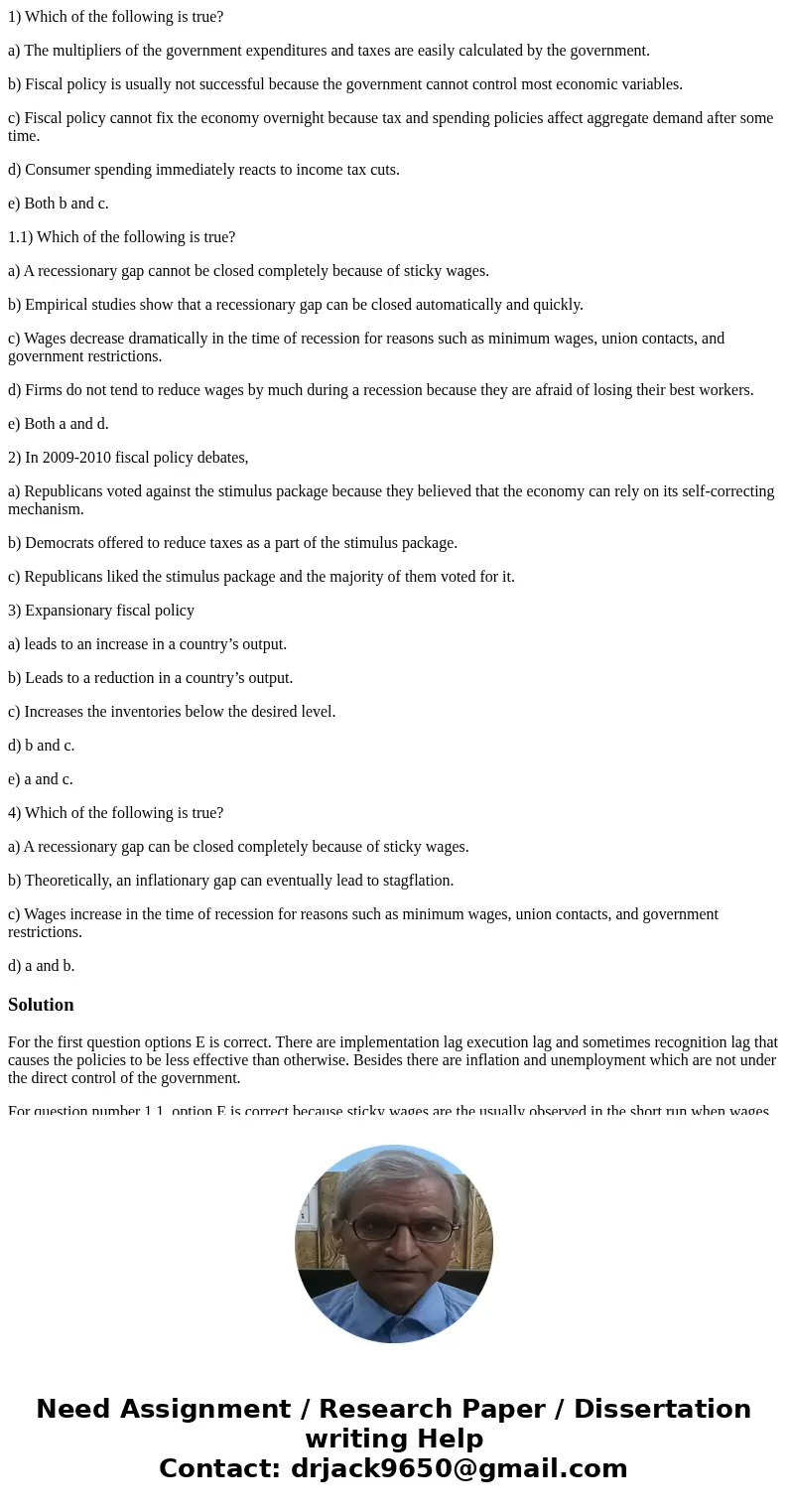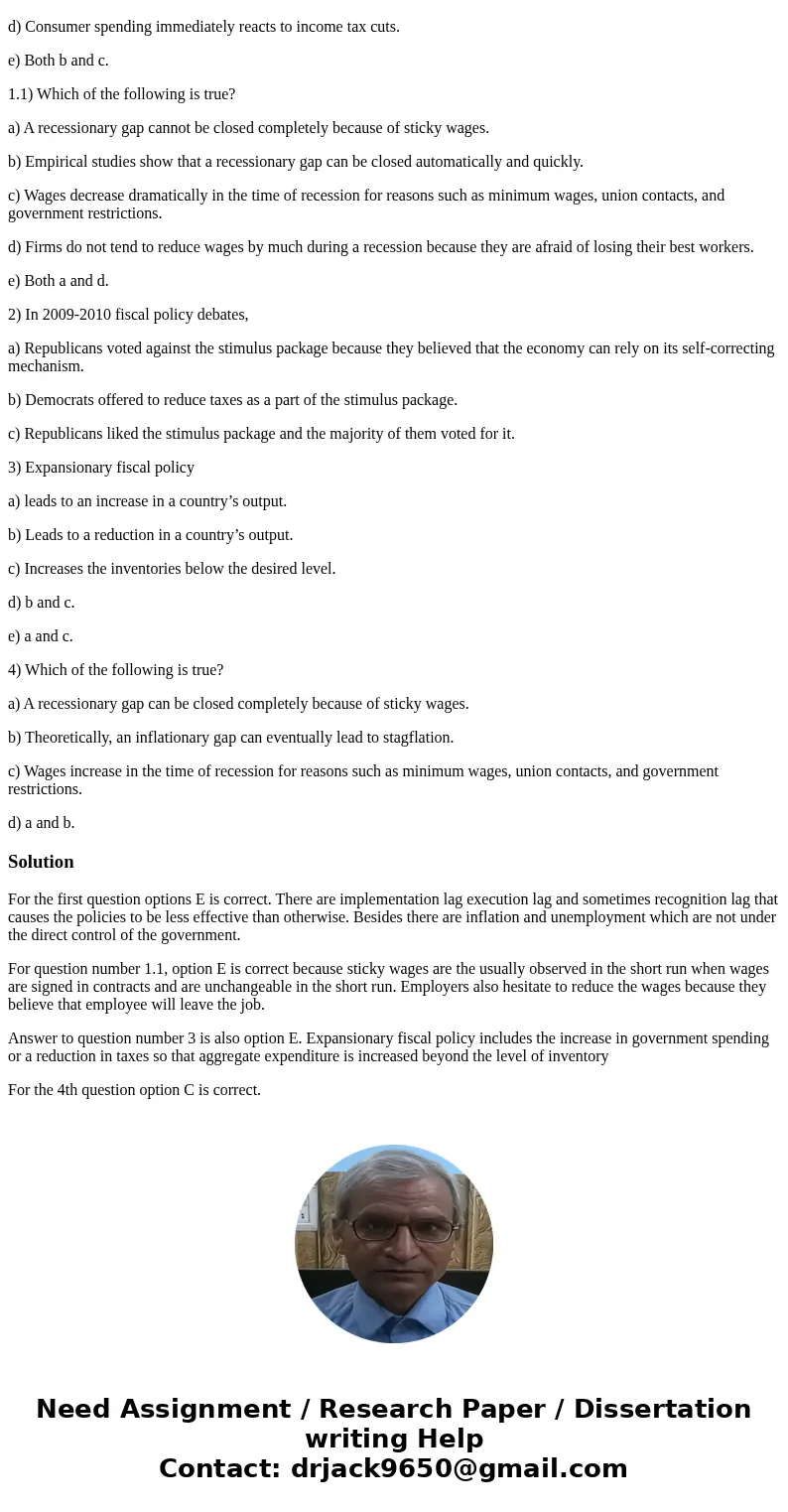1 Which of the following is true a The multipliers of the go
1) Which of the following is true?
a) The multipliers of the government expenditures and taxes are easily calculated by the government.
b) Fiscal policy is usually not successful because the government cannot control most economic variables.
c) Fiscal policy cannot fix the economy overnight because tax and spending policies affect aggregate demand after some time.
d) Consumer spending immediately reacts to income tax cuts.
e) Both b and c.
1.1) Which of the following is true?
a) A recessionary gap cannot be closed completely because of sticky wages.
b) Empirical studies show that a recessionary gap can be closed automatically and quickly.
c) Wages decrease dramatically in the time of recession for reasons such as minimum wages, union contacts, and government restrictions.
d) Firms do not tend to reduce wages by much during a recession because they are afraid of losing their best workers.
e) Both a and d.
2) In 2009-2010 fiscal policy debates,
a) Republicans voted against the stimulus package because they believed that the economy can rely on its self-correcting mechanism.
b) Democrats offered to reduce taxes as a part of the stimulus package.
c) Republicans liked the stimulus package and the majority of them voted for it.
3) Expansionary fiscal policy
a) leads to an increase in a country’s output.
b) Leads to a reduction in a country’s output.
c) Increases the inventories below the desired level.
d) b and c.
e) a and c.
4) Which of the following is true?
a) A recessionary gap can be closed completely because of sticky wages.
b) Theoretically, an inflationary gap can eventually lead to stagflation.
c) Wages increase in the time of recession for reasons such as minimum wages, union contacts, and government restrictions.
d) a and b.
Solution
For the first question options E is correct. There are implementation lag execution lag and sometimes recognition lag that causes the policies to be less effective than otherwise. Besides there are inflation and unemployment which are not under the direct control of the government.
For question number 1.1, option E is correct because sticky wages are the usually observed in the short run when wages are signed in contracts and are unchangeable in the short run. Employers also hesitate to reduce the wages because they believe that employee will leave the job.
Answer to question number 3 is also option E. Expansionary fiscal policy includes the increase in government spending or a reduction in taxes so that aggregate expenditure is increased beyond the level of inventory
For the 4th question option C is correct.


 Homework Sourse
Homework Sourse